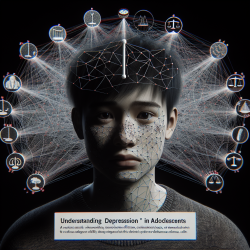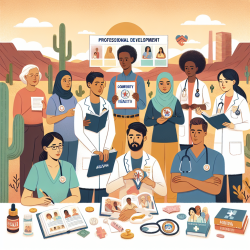Introduction
In an era where technology permeates every aspect of life, leveraging it for public health interventions offers a promising pathway to address critical issues. The pilot study of the eHealth Familias Unidas program highlights how an Internet-based adaptation of an evidence-based family intervention can significantly reduce drug use and sexual risk behaviors among Hispanic adolescents. This blog explores the study's findings and discusses how practitioners can enhance their skills by integrating such interventions into their practice.
The Power of eHealth Interventions
Health risk behaviors among youth, particularly substance use and sexual risk behaviors, pose significant public health challenges. These behaviors are prevalent and have a profound impact on multiple ecological systems, including family, school, and community. Disparities in these behaviors persist among racial and ethnic groups, with Hispanic adolescents reporting higher rates of drug use and lower rates of condom use compared to their peers.
The eHealth Familias Unidas pilot study, conducted with 23 Hispanic families, demonstrates the feasibility and acceptability of Internet-based interventions. With an impressive 83% engagement rate and a 78% session completion rate, the study indicates that eHealth interventions can effectively overcome barriers to participation and implementation.
Key Findings and Implications
The pilot study's findings offer valuable insights for practitioners aiming to improve outcomes for Hispanic adolescents:
- Feasibility and Acceptability: The study shows that Internet-based family interventions are not only feasible but also well-received by Hispanic families. This suggests that practitioners can confidently integrate such interventions into their practice to reach underserved populations.
- Engagement and Retention: The high engagement and retention rates underscore the importance of culturally relevant content. Practitioners should consider tailoring interventions to the cultural context of their target population to enhance engagement.
- Lessons Learned: Parents reported multiple lessons learned from the intervention, including effective parent-adolescent communication, active parental involvement, and the importance of discussing sex. These insights can guide practitioners in designing interventions that address key areas of concern for families.
Encouraging Further Research
While the pilot study provides a strong foundation, further research is needed to evaluate the efficacy of eHealth interventions on a larger scale. Practitioners are encouraged to contribute to this growing body of research by exploring innovative ways to implement and assess such interventions in diverse settings.
Conclusion
The eHealth Familias Unidas pilot study offers a compelling case for the use of Internet-based interventions to address health disparities among Hispanic adolescents. By integrating these findings into their practice, practitioners can play a pivotal role in creating positive outcomes for children and families. To read the original research paper, please follow this link: eHealth Familias Unidas: Pilot Study of an Internet Adaptation of an Evidence-Based Family Intervention to Reduce Drug Use and Sexual Risk Behaviors Among Hispanic Adolescents.










